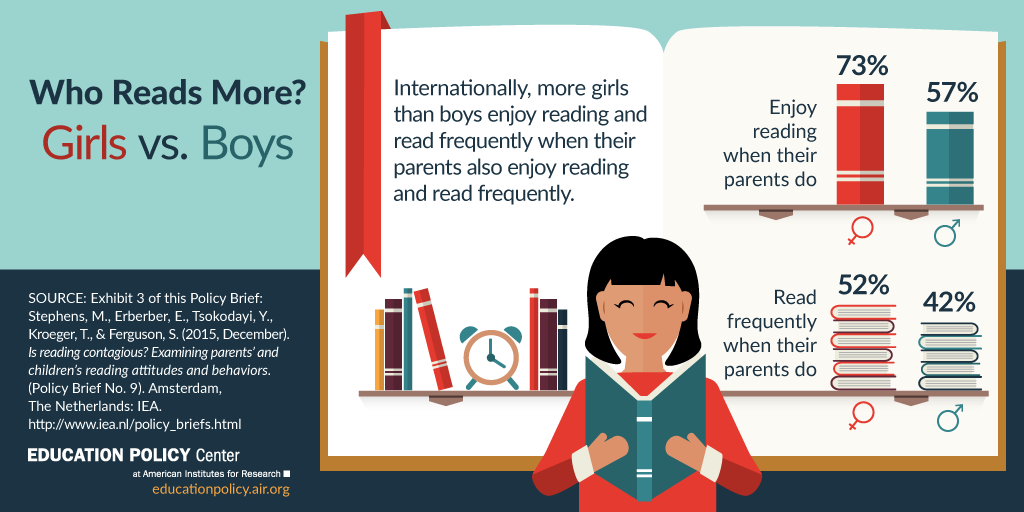Is Reading Contagious? Examining Parents’ and Children’s Reading Attitudes and Behaviors
When children have positive reading attitudes and behaviors, they generally also demonstrate strong reading skills. Strong reading skills enable children to access and learn content in a variety of subjects and reap a host of other academic and nonacademic benefits. Thus, it is of fundamental importance to ensure that children are motivated to read from an early age. One especially strong influence in children’s lives is their parents.
This brief examines whether parents’ reading attitudes and behaviors are shared by their children. It looks specifically at the extent to which children enjoy reading and read frequently for fun when their parents also do so and whether it is more common for some children (boys or girls, or children with more or less educated parents) to share their parents’ positive attitudes and behaviors. Though there is not certainty if or how parents pass their positive reading attitudes and behaviors on to their children, results do lend some credence to the idea that the “reading bug” might be contagious. Drawing on data on 4th-grade students from the 2011 Progress in International Reading Literacy Study (PIRLS), this brief can inform policy efforts to promote positive reading attitudes and behaviors in children.
Key Findings/Policy Implications
- Children tend to share their parents’ positive reading attitudes and behaviors.
- It is more common for girls than boys to enjoy reading and read frequently, among those children whose parents have positive reading attitudes and behaviors.
- Compared to the differences in reading enjoyment and frequency between boys and girls, differences based on parents’ level of education are not as common or consistent.
- It is more common for both parents and children to enjoy reading than to read frequently.



